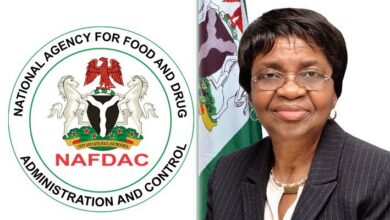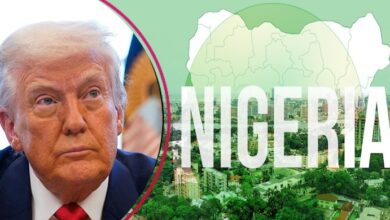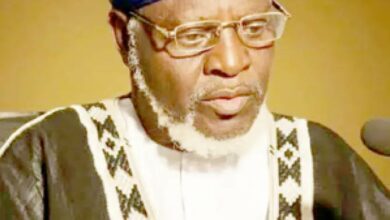Nigeria Considers Shifting Oil Contract Oversight to Regulator Amid Calls for Transparency
Nigeria Consider Shifting Oil

Nigeria Considers Shifting Oil Contract Oversight to Regulator Amid Calls for Transparency
The Nigerian government is weighing a major reform in its oil and gas sector that could reshape the balance of power between state institutions. A new proposal aims to amend the Petroleum Industry Act (PIA) to transfer control of oil contracts from the Nigerian National Petroleum Company Limited (NNPC) to the Nigerian Upstream Petroleum Regulatory Commission (NUPRC).
The move, government officials argue, is intended to curb revenue leakages, strengthen oversight, and enhance transparency in Africa’s largest oil-producing nation. But it has also sparked concerns among industry experts, lawmakers, and stakeholders about potential centralization of power and risks of bureaucratic bottlenecks.
A New Direction for the Petroleum Industry Act
Since its passage in 2021, the PIA has been hailed as a landmark reform for Nigeria’s oil sector, creating a framework for accountability, host community engagement, and investor confidence. However, critics say its implementation has been inconsistent, with overlapping functions between NNPC and NUPRC leading to disputes in contract approvals, licensing, and revenue remittances.
Under the current law, NNPC retains significant control over oil contracts, especially in joint ventures and production-sharing agreements with international oil companies. The proposed amendment seeks to shift that authority to NUPRC, which would serve as the single body responsible for negotiating, approving, and regulating all upstream contracts.
Supporters of the plan argue that this would eliminate conflicts of interest, as NNPC functions both as a regulator and a player in the industry. “You cannot be both a referee and a striker on the same pitch,” one senior government adviser noted, insisting that the reform would build trust with investors and reduce corruption.
Revenue and Transparency at the Heart of Debate
Nigeria’s oil industry has long been dogged by allegations of mismanagement, opaque contracts, and unaccounted revenues. According to a 2024 audit by the Nigeria Extractive Industries Transparency Initiative (NEITI), billions of naira in oil revenue discrepancies were traced to weak regulatory oversight.
Proponents believe that giving NUPRC full control will ensure better monitoring of production volumes, contract terms, and revenue sharing. With crude oil still accounting for more than 70% of Nigeria’s export earnings, the stakes are particularly high.
“Investors want clarity, and citizens want accountability. This reform could deliver both,” said an oil sector analyst in Lagos.
Critics Warn of Centralized Power
Despite its promise, the proposal has been met with skepticism. Industry players worry that concentrating contract authority in a single regulator could create fresh challenges. Some fear it may slow down approvals, discourage investment, and give too much discretionary power to the commission.
Opposition lawmakers have also raised alarms. “This could simply replace one monopoly with another,” argued a member of the House of Representatives, urging for a balanced approach that ensures checks and balances between NNPC and NUPRC.
Others point to the need for institutional strengthening, not just structural changes. “Without addressing corruption, inefficiency, and political interference, moving contracts around is like shifting chairs on the deck of a sinking ship,” said a civil society activist.
Implications for International Oil Companies
Nigeria’s deep water and onshore oil projects involve multinational giants such as TotalEnergies, Chevron, and Shell. For them, clarity in contract enforcement is crucial. Analysts say the proposed reform could boost investor confidence if implemented transparently, but uncertainty over legal frameworks could equally unsettle the market.
Already, some oil majors have been shifting investment away from Nigeria due to rising costs, security challenges, and regulatory disputes. The government, therefore, faces a delicate balancing act: ensuring transparency without stifling competitiveness.
The proposal is still in its early stages, with debates expected in the National Assembly in the coming weeks. If passed, it would mark one of the most significant shifts in Nigeria’s oil governance in decades.
Observers stress that whatever reforms are adopted, success will depend on strong institutions, political will, and genuine commitment to transparency. For ordinary Nigerians, the question remains whether these changes will translate into better public services, infrastructure, and job creation in a country where oil wealth has rarely trickled down.
Nigeria stands at a crossroads. The decision to transfer oil contract oversight to NUPRC could be a step toward restoring trust in the petroleum sector. However, reforms must be accompanied by safeguards to prevent abuse of power, ensure timely approvals, and guarantee that revenues are transparently accounted for. Without these measures, the reform risks becoming another recycled promise in the long history of Nigeria’s oil industry.




















